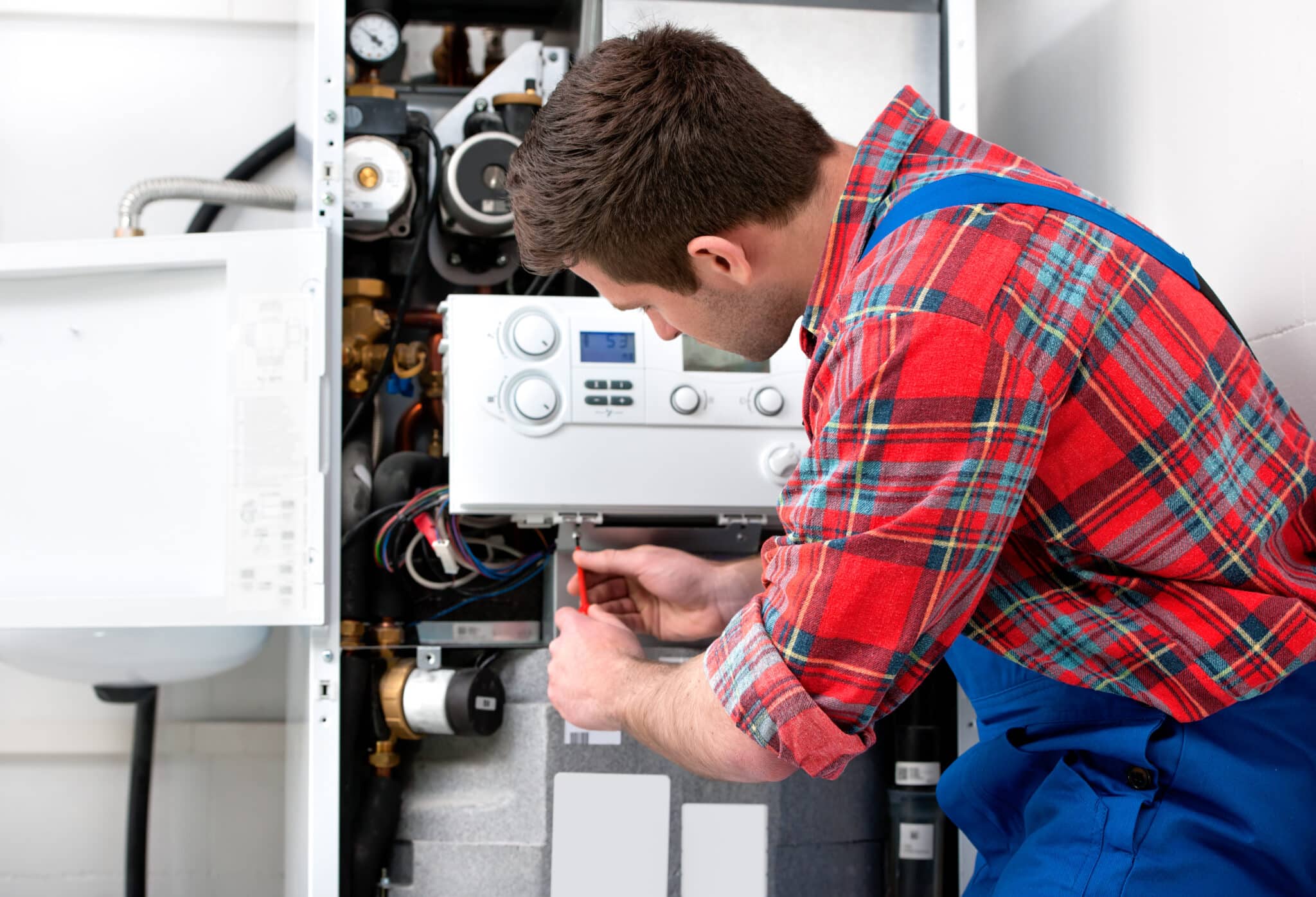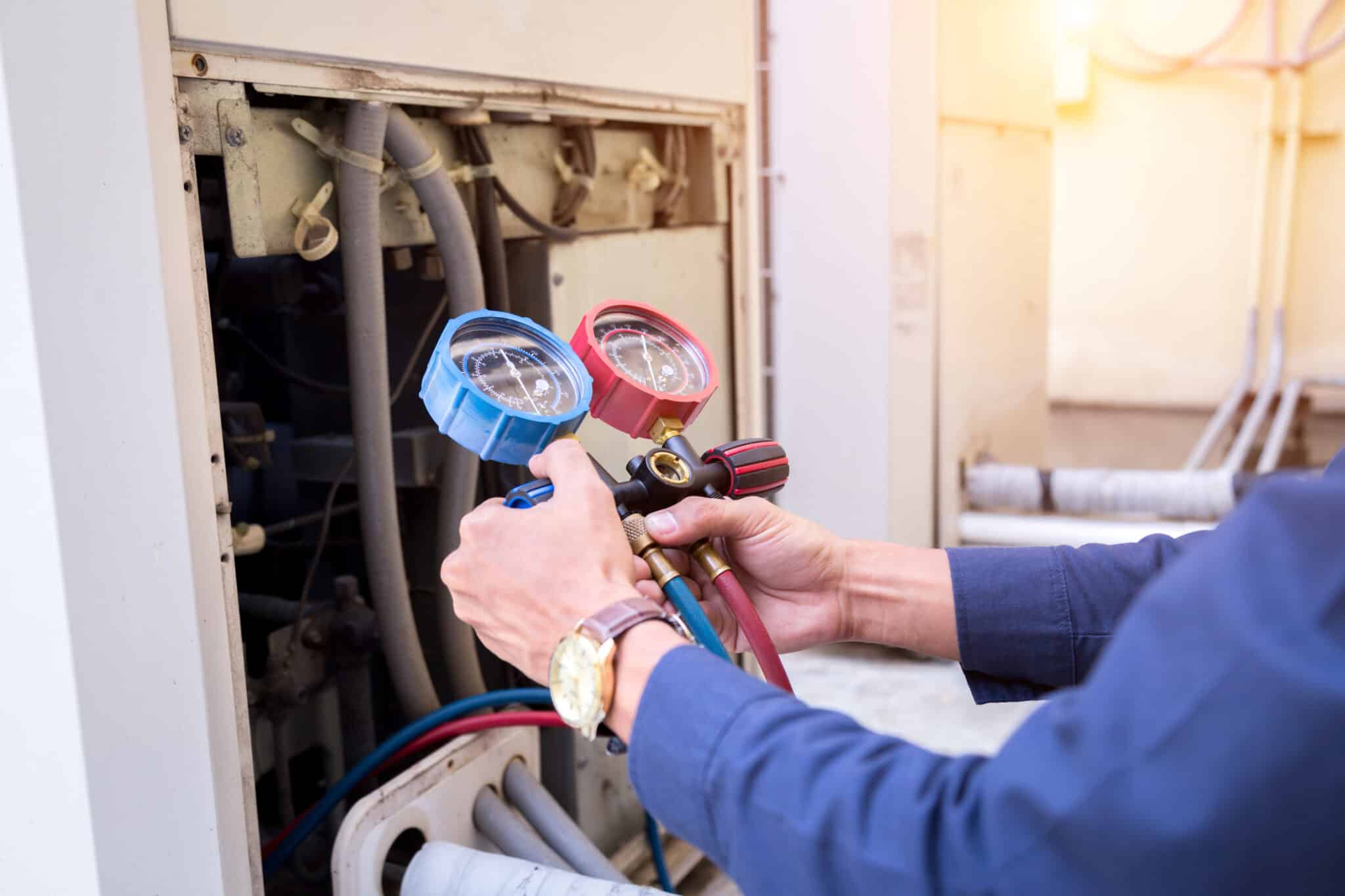As winter approaches, ensuring your home’s heating system is in top condition is essential. A heating system inspection helps prevent unexpected breakdowns, reduces energy costs, and ensures your family’s comfort during the colder months. Ignoring warning signs can lead to costly repairs or even complete system failure at the worst possible time.
At Pro Heating and Air, we specialize in providing professional HVAC services in Springtown, TX to keep your heating system running smoothly. Whether your heater is making strange noises, failing to warm your home evenly, or causing a spike in energy bills, a thorough inspection can diagnose and resolve these issues before they worsen.
This article will cover the top five signs that indicate you need a heating system inspection this winter. Recognizing these early warning signals can help you avoid emergency repairs and keep your home warm and safe all season long.
Sign #1: Uneven Heating in Your Home
If some rooms in your home feel warm while others remain chilly, your heating system may not be working efficiently. Uneven heating is a common sign that you need a heating system inspection to identify potential issues affecting airflow or system performance. A well-maintained system should distribute heat evenly throughout your home, keeping every room at a comfortable temperature.
Several factors can cause inconsistent heating. Clogged air filters can restrict airflow, reducing the amount of warm air reaching certain rooms. Blocked vents or closed registers can also create temperature differences. In some cases, a malfunctioning thermostat may not be correctly reading the indoor temperature, causing the system to cycle improperly. Additionally, leaky or poorly insulated ductwork can allow warm air to escape before it reaches its intended destination, resulting in uneven heating.
Ignoring this issue can lead to bigger problems over time. If your system is struggling to distribute heat evenly, it may have to work harder to compensate. This extra strain can cause higher energy bills, reduce overall system efficiency, and contribute to premature wear and tear on vital components. Over time, this can lead to costly repairs or even a complete system failure when you need it most.
A heating system inspection can help identify and address these issues before they escalate. An HVAC professional will check airflow, inspect ducts, and ensure that your thermostat and other components are working correctly. If you’re experiencing uneven heating in Springtown, TX, scheduling an inspection with Pro Heating and Air can help restore comfort and efficiency to your home before winter sets in.

Sign #2: Unusual Noises from Your Heater
A properly functioning heating system should operate quietly, with only a faint hum or the sound of air moving through the vents. If you start hearing unusual noises, such as banging, whistling, rattling, or grinding, it’s a clear sign that you need a heating system inspection. Ignoring these sounds could lead to serious mechanical issues and expensive repairs down the line.
Each noise can indicate a different underlying problem. Banging or booming sounds may mean there is a delay in ignition, causing gas buildup that combusts all at once. This could point to dirty burners or faulty ignition components, which require immediate attention. Whistling noises might suggest restricted airflow due to a clogged air filter, blocked vents, or leaky ductwork. Rattling sounds can be a sign of loose screws, broken parts, or failing components inside the system. A grinding noise, on the other hand, is particularly concerning because it could mean the blower motor is failing and needs repair or replacement.
These noises don’t just signal mechanical problems, they can also impact energy efficiency and your heating system’s lifespan. When a heater struggles to function properly, it works harder, leading to higher energy consumption and potential system breakdowns during the coldest months.
A heating system inspection can help pinpoint the exact cause of these sounds. An HVAC professional will check internal components, lubricate moving parts, and ensure your system is operating safely. If you’re in Springtown, TX, scheduling an inspection with Pro Heating and Air can prevent minor issues from turning into costly repairs, keeping your home warm and comfortable all winter long.
Sign #3: A Sudden Spike in Energy Bills
If you notice an unexpected increase in your energy bills during the winter months, your heating system may not be running efficiently. A properly functioning unit should maintain consistent energy usage, keeping your home warm without excessive costs. A sudden spike in energy consumption is often a sign that you need a heating system inspection to identify potential issues.
Several factors can cause your heating system to use more energy than usual. A clogged air filter forces the system to work harder to push air through, increasing energy consumption. Aging or worn-out components, such as a struggling blower motor or dirty burners, can reduce efficiency and cause the system to run longer than necessary. Leaky ductwork can also contribute by allowing warm air to escape before it reaches your living spaces, making your system work overtime to compensate for the heat loss.
Ignoring these efficiency issues can lead to long-term damage and higher repair costs. When a heating system struggles to perform, it experiences more wear and tear, which can shorten its lifespan. Additionally, running an inefficient heater for an extended period could result in overheating or system failure, leaving you without warmth during the coldest days.
A heating system inspection can help diagnose the problem before it worsens. An HVAC technician will assess airflow, check for leaks, and ensure that key components are functioning correctly. If you’re in Springtown, TX, scheduling an inspection with Pro Heating and Air can help restore your system’s efficiency and keep your energy costs under control.
Sign #4: Frequent Cycling or Difficulty Starting
Your heating system should turn on, run for a steady period, and then shut off once it reaches the desired temperature. If your heater turns on and off too frequently (short cycling) or struggles to start, it may indicate a hidden issue. A heating system inspection can help diagnose the cause and prevent further damage.
Frequent cycling can be caused by a malfunctioning thermostat, which may incorrectly read indoor temperatures and signal the system to turn off too soon. Clogged air filters can also restrict airflow, causing the system to overheat and shut down as a safety measure. Additionally, an oversized heating system may heat your home too quickly, leading to shorter run cycles that reduce efficiency and wear out components faster.
If your heater has trouble starting, this could be a sign of electrical problems, such as a failing ignition system, a worn-out capacitor, or loose wiring. Over time, these issues can put strain on your heating system, increasing the risk of a sudden breakdown. Ignoring these symptoms can lead to higher energy costs, inconsistent heating, and potential safety risks if left unchecked.
A professional heating system inspection will help identify the root cause of frequent cycling or startup issues. An HVAC technician will check your thermostat, airflow, and electrical components to ensure everything is operating properly. If you’re in Springtown, TX, scheduling an inspection with Pro Heating and Air can help prevent costly repairs and ensure your heating system runs smoothly all winter.
Sign #5: Poor Indoor Air Quality & Excess Dust
If you’ve noticed an increase in dust, allergens, or musty odors in your home, your heating system may be to blame. A poorly maintained heater can circulate contaminants, reducing indoor air quality and affecting your health. Scheduling a heating system inspection can help identify issues that may be polluting the air inside your home.
A dirty or clogged air filter is one of the most common causes of poor indoor air quality. When filters become overloaded with dust, pet dander, and other particles, they can no longer effectively trap contaminants. This allows allergens and pollutants to circulate through your vents, leading to increased allergy symptoms, respiratory issues, and unpleasant odors. Additionally, mold or mildew growth inside the ductwork or heating components can further contribute to poor air quality.
Another possible cause is leaky ductwork, which can draw in dust and debris from unconditioned areas like attics or basements. When this happens, your heating system spreads these particles throughout your home, making it feel stuffy or stale. In some cases, an aging furnace or cracked heat exchanger can even release dangerous gases like carbon monoxide, posing serious health risks.
A professional inspection can help pinpoint the source of these air quality problems. An HVAC technician will check filters, inspect ducts for leaks, and ensure your system is properly ventilated. If you’re in Springtown, TX, scheduling an inspection with Pro Heating and Air can help keep your home’s air clean and safe throughout the winter.
The Benefits of Regular Inspections
Scheduling routine maintenance for your heating equipment is one of the best ways to prevent unexpected breakdowns and ensure peak efficiency. Many homeowners wait until problems arise, but proactive inspections offer long-term benefits that go beyond just fixing immediate issues.
One of the biggest advantages is improved energy efficiency. A well-maintained unit requires less energy to heat your home, leading to lower utility bills. Dust buildup, clogged filters, and worn-out components can force the system to work harder, consuming more power. Regular checkups help address these issues before they escalate.
Another key benefit is extended equipment lifespan. Just like a car, your furnace or heat pump lasts longer with proper care. Addressing minor wear and tear early can prevent costly repairs and premature replacement. An expert technician can spot signs of deterioration and make necessary adjustments to keep everything running smoothly.
Safety is another major concern. Gas furnaces, in particular, can develop carbon monoxide leaks if components become damaged or fail. Regular servicing ensures all safety features are functioning correctly, reducing risks to your household. For homes in Springtown, TX, staying ahead of potential hazards is crucial during the colder months.
By scheduling seasonal maintenance, you can enjoy consistent comfort, lower repair costs, and peace of mind knowing that your heating setup is operating efficiently. If it’s been a while since your last checkup, now is the perfect time to book an appointment with Pro Heating and Air before winter reaches its peak.
What to Expect During an Inspection
If you’ve never scheduled a professional HVAC checkup, you might wonder what the process involves. A thorough inspection goes beyond a simple filter change, it ensures every component is functioning correctly and efficiently.
A certified technician will start by examining the thermostat to verify that it’s calibrated correctly and communicating with the heating unit. If the thermostat is malfunctioning, it can cause temperature fluctuations and energy waste. Next, the air filters will be checked and replaced if needed. Dirty filters restrict airflow, making the system work harder and reducing indoor air quality.
The blower motor, burners, and ignition system will also be inspected. A failing motor or a dirty burner can lead to inconsistent heating or even safety hazards. If necessary, the technician will clean components to improve efficiency. Ductwork and ventilation will also be assessed for leaks or blockages that could be affecting airflow and comfort levels in different rooms.
For gas furnaces, carbon monoxide detection tests are an essential part of the inspection. A cracked heat exchanger can release this dangerous gas into your home, posing serious health risks. Ensuring all connections and safety controls are intact is a priority during routine maintenance.
By the end of the service, you’ll receive a report detailing any necessary repairs or adjustments. For homeowners in Springtown, TX, scheduling a seasonal inspection with Pro Heating and Air ensures your unit is safe, efficient, and ready for winter.
When to Schedule an Inspection in Springtown, TX
Timing is everything when it comes to maintaining your heating system. Many homeowners wait until winter is in full swing before scheduling maintenance, but by then, small issues may have already turned into major problems. The best time to book an inspection is in early fall, before temperatures drop significantly. This proactive approach ensures your system is running efficiently when you need it most, reducing the risk of breakdowns during the coldest months.
However, if you’ve missed the fall window, it’s never too late to schedule a checkup. If you’re already noticing uneven heating, rising energy bills, or unusual noises, don’t ignore these warning signs. A mid-season HVAC evaluation can catch developing issues before they escalate, preventing costly emergency repairs. Even if your system seems to be working fine, hidden problems, like dirty burners, weak airflow, or failing components, can compromise performance and safety over time.
For homes in Springtown, TX, winter temperatures can be unpredictable, with occasional cold snaps that put extra strain on heating systems. Regular maintenance not only helps prevent emergency breakdowns but also ensures consistent warmth and energy efficiency throughout the season. Additionally, scheduling routine inspections can extend the lifespan of your unit, saving you money on repairs and premature replacements. Investing in maintenance now means avoiding the inconvenience of losing heat on a freezing night.
At Pro Heating and Air, we recommend booking an appointment before the coldest weather arrives. Our team will perform a comprehensive system check, address any potential issues, and ensure your home stays warm and comfortable all season long. If it’s been over a year since your last inspection, now is the perfect time to call and set up a service visit. Don’t wait until it’s too late, ensure your heating system is ready for the winter ahead.

FAQ: Common Questions About Heating Inspections
1. How often should I schedule an inspection?
It’s best to have your system checked once a year, ideally before winter. Regular maintenance ensures optimal efficiency and prevents unexpected breakdowns. Annual inspections help extend the unit’s lifespan and improve performance. Waiting too long between checkups can lead to costly repairs.
2. Can an inspection prevent costly repairs?
Yes, routine checkups allow technicians to catch minor issues before they worsen. Small problems, like clogged filters or worn-out parts, can strain the system over time. Addressing these early helps avoid expensive emergency repairs. Preventive maintenance keeps your unit running efficiently all season long.
3. How long does a heating inspection take?
Most inspections take between 60 and 90 minutes, depending on the system’s condition. A thorough check includes testing components, cleaning parts, and identifying any concerns. If repairs or adjustments are needed, the process may take longer. Scheduling regular checkups ensures your unit stays in top shape.
4. Will an inspection improve my home’s air quality?
Yes, inspections help reduce dust, allergens, and pollutants in your home. Technicians clean or replace filters and inspect ductwork for leaks. A well-maintained system improves airflow and prevents circulation of airborne contaminants. Better air quality means a healthier and more comfortable home.
5. Does an inspection include checking for carbon monoxide leaks?
Yes, professionals check for leaks to ensure your home’s safety. A cracked heat exchanger or blocked vent can release harmful gases. Carbon monoxide detection is a key part of any thorough inspection. Regular maintenance helps prevent dangerous exposure.








